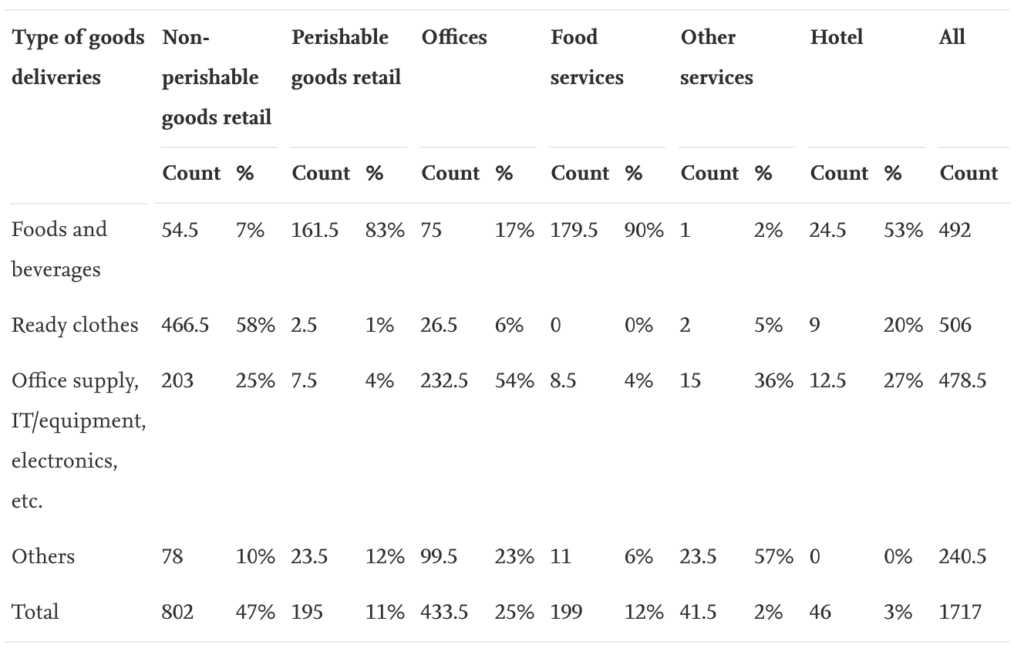Commercial activity and supporting freight movements are essential to urban life. Unfortunately, urban freight has adverse effects on sustainability and requires innovative approaches to enhance the positive aspects and minimize the negative ones. There is a common understanding among practitioners that the negative impacts of urban freight can be alleviated with better knowledge about the system and by identifying and engaging influential stakeholders.
A new paper focuses on property owners and their role in encouraging initiatives that lead to more sustainable urban freight delivery practices. Property owners engage in sustainability issues in real estate because they are interested in developing their properties to increase their attractiveness, competitiveness, and future market value. A shopping mall is an example of a property that generates much freight traffic due to intense commercial activity. The main empirical section shows the data analysis of two weeks of goods deliveries to the Nordstan shopping mall in Gothenburg (Sweden). According to the results, 158 establishments in Nordstan generate approximately 300 freight trips per day; weekly deliveries are, on average, 1.632, with deliveries made almost entirely during weekdays.

The paper studies the delivery patterns to a centrally located Nordstan shopping mall in Gothenburg (Sweden). About half of the establishments perform retail activities of non-perishable goods, while another quarter is offices, and nearly a fifth perform food services. Grocery stores and retailers of perishable goods represent a small share of the establishments.
The survey also identifies how property owners could influence the delivery patterns of their tenants. For example, the survey shows that almost half of the deliveries are managed by a central office or chain; one-fifth of establishments receive deliveries where they do not have control over the date and time (later referred to as uncontrolled) deliveries; only 8% of goods receivers control or influence their own deliveries.
A range of initiatives is proposed based on the literature and considering the delivery patterns observed. The results show that property owners can include freight deliveries in their sustainability strategy, focusing on fostering collaboration and communication between the tenants and promoting supply chain strategies that consider the type of activities that take place and the scope to reduce the number of truck movements and increase the efficient and sustainable goods deliveries.
